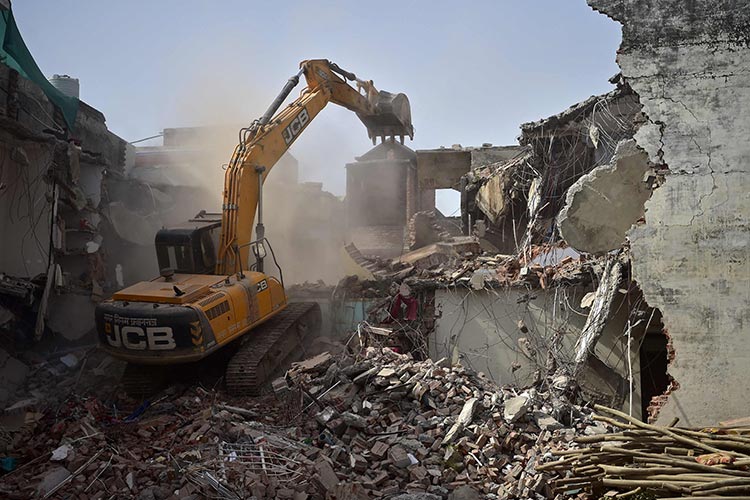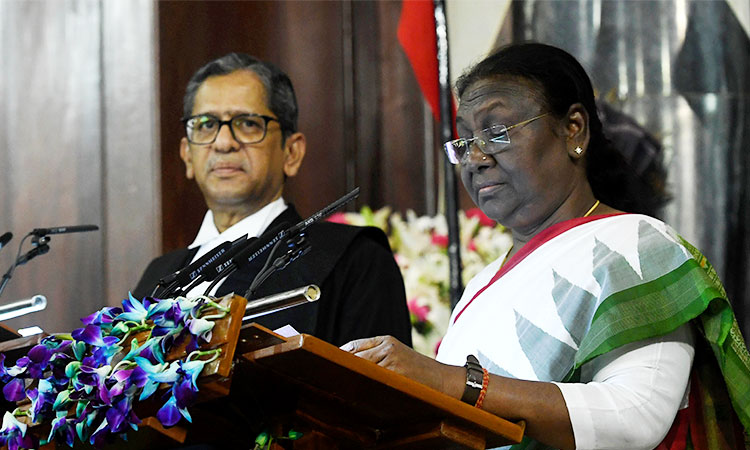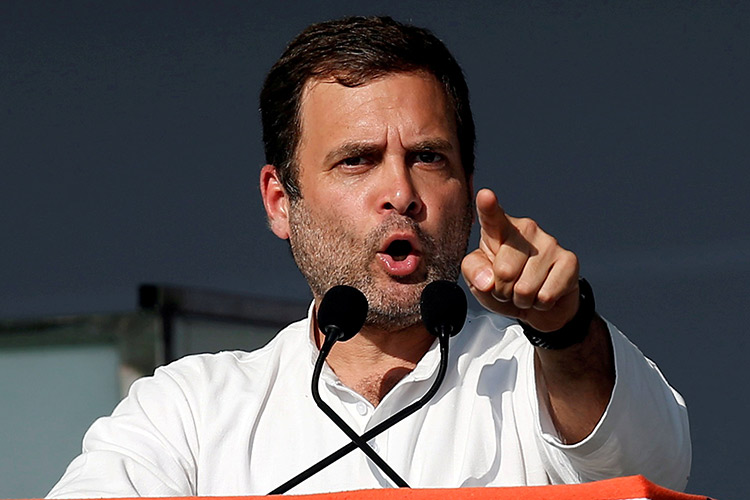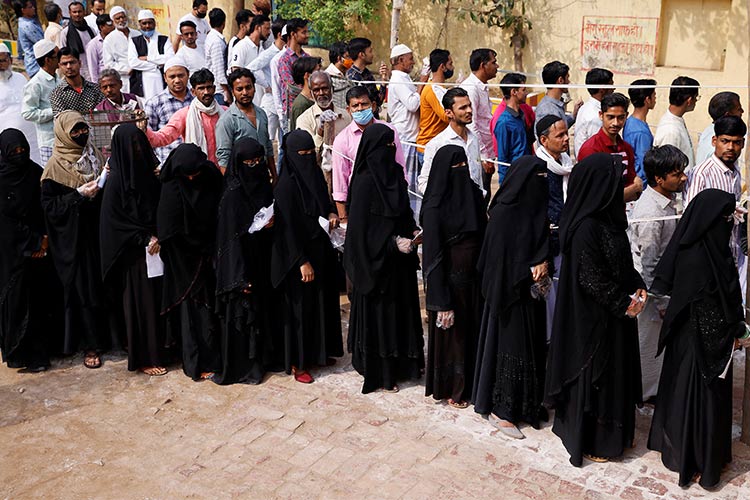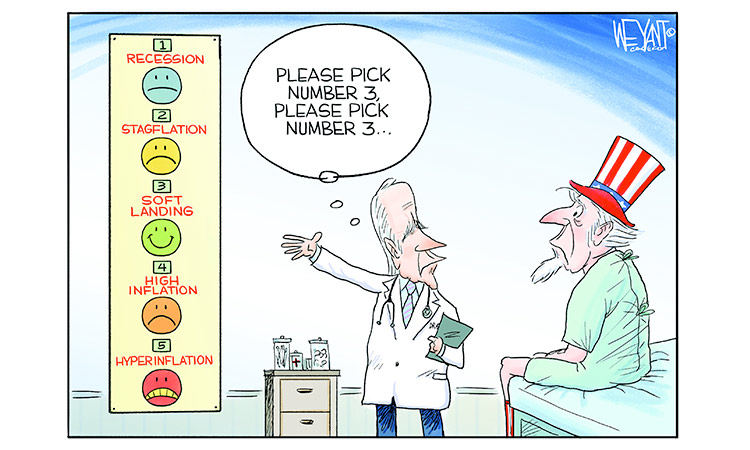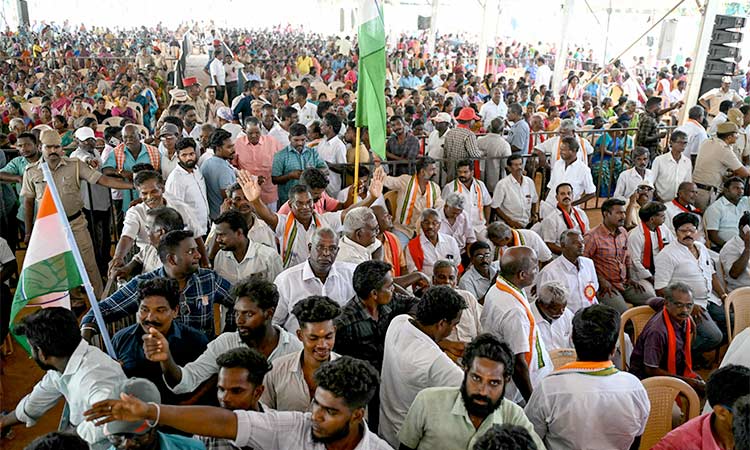Banks need to be free from political meddling

BRP Bhaskar
@brpbhaskarIndian journalist with over 50 years of newspaper, news agency and television experience.
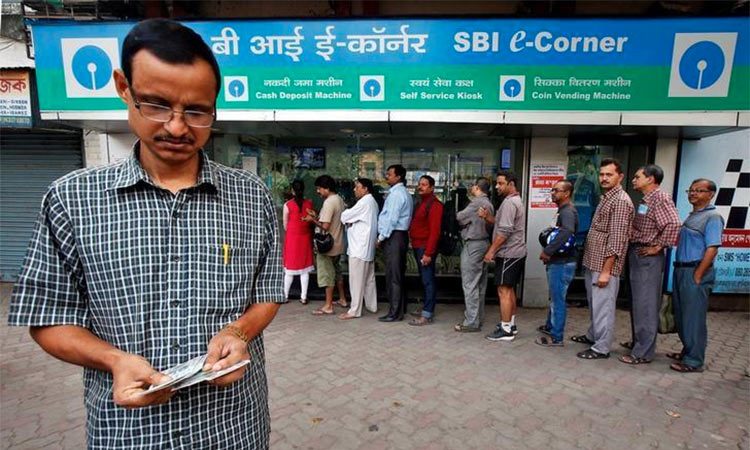
A man counts rupee banknotes after withdrawing them from an ATM in Kolkata, India. Reuters
BRP Bhaskar, Political Commentator
A steep rise in loan defaults during the Modi years has landed India’s banking system in a crisis. Several measures have been mooted to deal with the problem, but they steer clear of the core issue which is wilful neglect of professionalism to propitiate powerful corporate interests that enjoy political patronage.
Public sector banks dominate the sector, accounting for about 70 per cent of its assets. Between 2014 and 2018 they wrote off bad loans to the tune of Rs 5,560 billion.
Write-off is a way of cleaning the statement of accounts. Theoretically, it does not preclude the bank from continuing efforts to recover the money but usually it does not exert much pressure on the borrower after the write-off.
Data shows only about 15 per cent of written-off loans are recovered. This means the banks are making big gifts to delinquent customers through write-offs. At the end of 2018, banks’ gross non-performing assets (an euphemism for loan defaults) stood at Rs 8,640 billion, according to provisional data furnished by the Reserve Bank of India to the government. This was 13.6 per cent of the advances, which totalled Rs 63,210 billion.
After 31 big defaulters, including liquor baron and airline promoter Vijay Mallya and diamond king Neerav Modi, fled just as banks initiated action against them, the government considered issuing orders to bar other defaulting businessmen from leaving the country.
Accordingly, officials drew up a list of 91 persons associated with different companies. However, it is not known if airports have been instructed to prevent them from flying out of the country.
The authorities’ readiness to protect the identity of wilful defaulters in the name of fiduciary relationship is a factor that helps delinquent borrowers. The RBI routinely rejects requests under the Right to Information (RTI) Act for names of defaulters in spite of a Supreme Court directive.
Last month the court gave the RBI “a last chance” to provide the information they had sought. Parliament was told recently that the number of bank frauds involving Rs 100,000 and above had gone up from 4,693 in fiscal 2016 to 5,076 in 2017 and 5,917 in 2018.
There are two reasons for the rise in bad loans under Prime Minister Narendra Modi. One is the introduction of strict accounting rules mandated by international agreements. The other is the introduction of a free-wheeling loans policy.
When companies seek loans, the banks customarily take personal guarantees from their directors but rarely do they invoke the guarantees when a company defaults. Departing from this practice, the State Bank of India last week filed a suit before the Debt Recovery Tribunal at Ahmedabad for recovery of Rs 150 billion from Prashant Ruia and Ravi Ruia, promoters of EssarSteel, who had given personal guarantees when the company took a loan.
Does this mark the end of the growing impunity which owners of defaulting companies enjoyed under the Modi regime? More such action is needed to answer this question in the affirmative.
As companies with heavy debts started closing down, throwing banks which had lent them money in trouble, the Modi government introduced the Insolvency and Bankruptcy Code (IBC) with the proclaimed objective of enforcing some order. Finance Minister Arun Jaitley says IBC helped bring close to Rs 3,000 billion back into the banking system.
However, according to financial experts, IBC has opened the way for big companies to acquire small ones at low prices. IBC proceedings brought to light financial irregularities to the tune of Rs 1,000 billion in the companies. “This,” an analyst points out, “is for companies that went bankrupt. So you can imagine what’s going on in companies that are still functional.”
Bad loans have done enormous damage to the health of the banking system. In the financial year 2016-17 public sector banks had reported an aggregate net profit of Rs 3 billion. Thereafter they went into the red, recording losses of Rs 106 billion and Rs 110 billion in the last two years.
The government has two ideas to deal with the crisis. One is to amalgamate some banks to create bigger units. The other is to privatise the banks by divesting some of the stocks it holds.
A big bank does not necessarily mean a healthy bank. The assumption that private banks are better run than state-owned ones is questionable. The largest private bank now in the field is grappling with problems similar to those dogging the public sector banks.
Banks must be strengthened professionally and allowed to function without political interference in day-to-day working.
